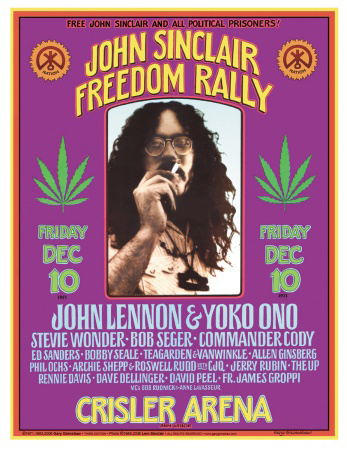Cannabis Advocates Want To Remove Marijuana From Controlled Substances List
A group of Michigan citizens and organizations is suing the Michigan Board of Pharmacy to eliminate marijuana from the Schedule I list of controlled substances.
The state’s Public Health Code, which was enacted in 1978, treats marijuana like opioids and heroin, and that is “unconstitutional under Michigan law,” wrote Michael KOMORN, attorney for the residents and organizations in the complaint recently filed in the Court of Claims.
“Even opium, a ‘hard narcotic’ and the root of the opioid epidemic, is a Schedule 5 drug when sold in small concentrations,” he said. “As there is no rational basis to classify marijuana with hard narcotics, it now must be classified below Schedule 5. As no such schedule exists, marijuana must be de-scheduled.”
Komorn, president of the Michigan Medical Marijuana Association, also argued that by passing the Medical Marihuana Facilities Licensing Act (MMFLA), the “Legislature has by implication repealed . . . marijuana’s controlled substance status.”
The MMFLA and Michigan Controlled Substances Act (MCSA), he noted, are “fundamentally inconsistent and incapable of being harmonized.”
Contact Komorn Law… 800-656-3557.
Other plaintiffs include the Michigan Medical Marijuana Association, Dr. Christian Bogner, who researches the effects of cannabis to treat autism; Josey Scoggin, whose daughter is a medical marijuana patient; Paul Littler, a pharmacist; NORML of Michigan.
The “absurdity” of the legal conflict between the Medical Marihuana Facilities Licensing Act and the Public Health Code has to be addressed, said Michael Komorn, one of the attorneys behind the case.
“It’s intellectually dishonest,” Komorn said.
For the past year, state officials have allowed caregivers to grow marijuana at home and bring it to provisioning centers to sell to patients — a practice that continues as there’s a shortage of licensed marijuana in the market.
“This is not a controlled substance,” Komorn said. “The idea that someone would be growing an opioid … and bringing it to a pharmacy because they were running low on their meds is the scenario that would have to exist in order for marijuana to remain as a scheduled drug.”
“Michigan’s Public Health Code was adopted in 1978, and mirrored much of the national rhetoric towards drugs”, Komorn said.
John Sinclair has a long history of advocacy in Michigan; his 1967 arrest over two joints sparked the first Hash Bash in Ann Arbor.
The Michigan Supreme Court in 1972 noted in the opinion that overturned Sinclair’s conviction that…
“not only that there is no rational basis for classifying marijuana with the ‘hard narcotics’, but, also, that there is not even a rational basis for treating marijuana as a more dangerous drug than alcohol.”











